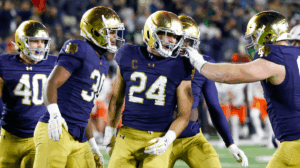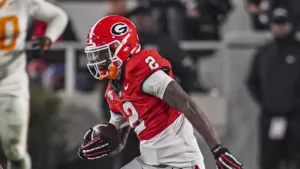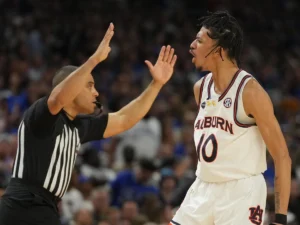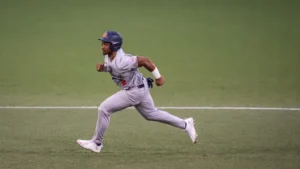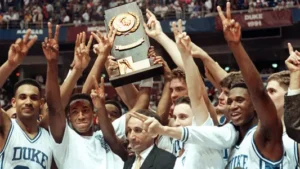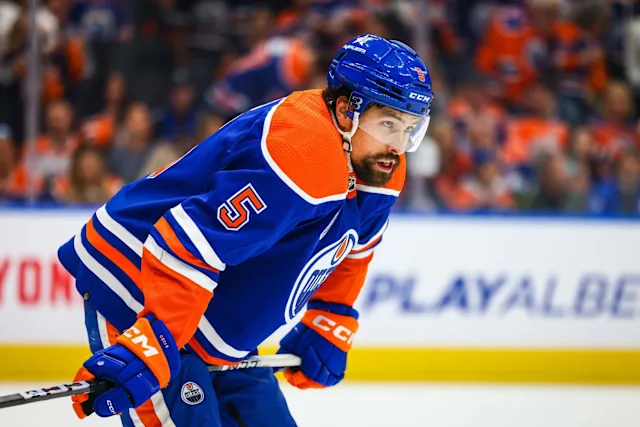
Oilers: “I Can’t Comment On That” Refusing to Put Bouchard Under the Bus, Kris Knoblauch
Oilers’ Coach Kris Knoblauch’s Response Regarding Evan Bouchard
In the aftermath of a challenging game, Edmonton Oilers’ Head Coach Kris Knoblauch’s response to a question about Evan Bouchard’s defensive play has sparked considerable discussion. This phrase, “I can’t comment on that,” while brief, speaks volumes about the delicate balance a coach must maintain between addressing team performance and supporting individual players.
The Context
To understand the significance of Knoblauch’s response, it’s essential to consider the game’s context. Evan Bouchard, a key defenseman for the Oilers, had astatistically significant game, contributing three assists. However, his defensive performance was under scrutiny, with some analysts and fans pointing out errors that led to goals against the Oilers. The team faced a rollercoaster of a game, ultimately losing by a narrow margin. This loss has put the team under pressure, and every player’s performance is being closely examined.
The Coach’s Dilemma
In a post-game interview, Knoblauch was asked about the need for improved defense from Bouchard, particularly with Mattias Ekholm, a stabilizing defensive presence, being absent due to injury. Knoblauch’s response, “I can’t comment on that,” reflects the classic dilemma faced by coaches in team sports:
- Protecting the Player: Publicly criticizing a player can damage their confidence, create rifts within the team, and affect overall morale. Bouchard is a crucial part of the Oilers’ offense, and undermining him could have negative repercussions on the team’s performance.
- Addressing Performance: Ignoring defensive lapses can lead to recurring problems. The coach needs to ensure that all players are accountable and working towards improving their game.
- Maintaining Team Harmony: A coach’s words can significantly impact team dynamics. Singling out a player can create a sense of unfairness or favoritism, disrupting the unity and focus of the team.
Knoblauch’s Approach
Knoblauch’s complete response provides further insight into his approach:
“I can’t comment on that. I don’t know the breakdowns,” Knoblauch said, refusing to throw his star defender under the bus. “I saw Evan give us an excellent opportunity to win tonight,” Knoblauch reasoned. “He made a lot of nice plays, was his game perfect? I’m not sure anybody’s game was perfect tonight.” “I think Evan’s a very important part of our team.”
Here, we can discern several strategies:
- Avoiding Public Criticism: By stating, “I can’t comment on that,” Knoblauch avoids directly criticizing Bouchard. He acknowledges the questions about Bouchard’s defense but chooses not to delve into specific errors or shortcomings.
- Highlighting Positives: Knoblauch emphasizes Bouchard’s positive contributions to the game, such as creating scoring opportunities. This approach balances the need to address concerns with the importance of recognizing a player’s strengths.
- Acknowledging Imperfection: Knoblauch admits that Bouchard’s game was not perfect, but he also points out that no player had a flawless performance. This diffuses the focus on Bouchard’s mistakes and implies that the entire team needs to improve.
- Reinforcing Value: Knoblauch reiterates Bouchard’s importance to the team. This message of support can boost the player’s confidence and reassure the team that the coach believes in him.
The Bigger Picture
Knoblauch’s handling of the situation reflects a modern coaching philosophy that prioritizes player development, mental well-being, and team cohesion. Here are some key takeaways:
- Emphasis on Development: Recognizing that players, especially young ones like Bouchard, are continually developing, Knoblauch focuses on providing constructive feedback in a more private setting, allowing the player to learn and improve without the added pressure of public scrutiny.
- Importance of Confidence: In high-pressure sports environments, a player’s confidence is crucial. Public criticism can erode confidence, leading to a decline in performance. Knoblauch’s approach aims to maintain Bouchard’s confidence, ensuring he can perform at his best.
- Team-First Mentality: By not singling out Bouchard, Knoblauch reinforces a team-first mentality. He implies that wins and losses are a collective responsibility, fostering a sense of unity and shared accountability.
Kris Knoblauch’s response regarding Evan Bouchard’s performance was a calculated decision that reflects the complexities of coaching in professional sports. He balanced the need to address performance issues with the importance of supporting a key player, maintaining team harmony, and promoting a positive team environment. His approach underscores the evolving nature of coaching, where player development, mental well-being, and team cohesion are as important as on-ice strategy.

